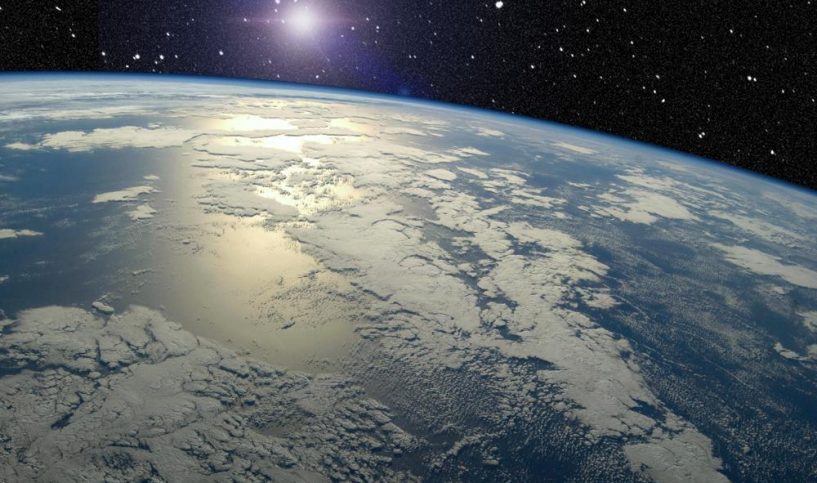Earth day is here, and this bazaar team is excited about doing our small part to help save the world we live in. Here it is, the definitive list of things you can do to help save the earth. One little bit at a time.
TRAFFIC
1. Carpool: We may not pay a lot for gas here in Kuwait, but if time is money then we’re wasting a lot of dinars on our daily commute. Carpooling helps reduce traffic congestion, greenhouse gas emissions, less pollution less consumption and less noise. It also helps to contribute to a healthier way of life for all people in your neighborhood, and less stress for you. Put together a group with your friends, or go to carpoolworld.com to sign up for a carpool group.
2. Consolidate your errands: Create an errand list based on where you need to go. Time it so that you get more done in each place to reduce your time on the road.
FOOD AND WATER
3. Make it from scratch: According to the World Bank Kuwait produces 1.4 kg of solid waste per capita, daily. You can easily reduce your contribution by foregoing packaged sauces, chutneys and broths and if you are a little bolder go for home baked bread! Buy fresh ingredients with little packaging, and store sauces in those lovely mason jars you bought but never used, and enjoy fresh homemade toppings on your pasta or rice. Invest in a bread maker and say goodbye to twisty ties and plastic bags for your toast.
4. Turn the water off: Do you keep the faucet running when you brush your teeth? What about when you are washing the dishes? Or when you are waiting for the shower to get just right? Have you been putting off fixing that leaky faucet or running toilet? Despite being one of the most arid countries on earth, we use more water per capita than any other country on earth. The country is susceptible to long periods of doubts, so every drop counts. Turn off the water when you aren’t using it. Try to take quick showers instead of long baths. Go to waterless car washes.
5. Get a water cooler or a filter for your faucet: Here in the arid land of Kuwait we water is a huge commodity. But before you pick up that pack of 500 ml water bottles think of where that bottle will go when you are done with it. They take over 1,000 years to biodegrade, and release toxic fumes when burned. Only one out of every 5 bottles is recyclable. Also consider where the bottle came from. It is estimated that 3 liters of water is used to package 1 liter of bottled water.
Purchase a water cooler and subscribe to a water delivery system. Look for one that has reusable water containers to get the best of both worlds: bottled water without the waste. Or simply purchase a water filter for your faucet and drink right from the tap!
6. Plan your meals in advance: Take a moment on Saturday morning and look in your fridge. See what ingredients are about to expire, and plan your meals. IF you only get what you know you will eat, you are less likely to waste food. Roughly one third of the food we make, 103 billion tons, gets lost or wasted. Wealthy countries like Kuwait waste almost as much food, 222 million tons, as the entire net of food production in sub-Saharan Africa. This wasted food is sent to landfills, and emits the largest source of methane emissions.
7. Go Vegetarian once a week: It takes about 3 KG of grain, almost 200 liters of water, about 7 sqm of grazing land and 1,036 btu of fossil fuel to make just one quarter pounder (about 100gms of meat) hamburger. Going vegetarian just one day a week can go a long way to saving energy and food for people who need it.
WASTE
8. Use reusable shopping bags: Find an inexpensive reusable tote that will probably help save hundreds if not thousands of marine wildlife. Think of it this way, plastic bag debris is only second to cigarette butts and filter and accounts for 11% of ALL marine debris picked up in the world. Here in Kuwait where we have five of the surviving seven endangered sea turtles that even more important. Sea turtles often confuse trash bags with jelly fish. Once they ingest the plastic it blocks their system and they die of malnutrition. So every bag you use and eventually through away could end up in Kuwaiti waters.
9. Use reusable diapers: Diapers are gross, and parents can hardly wait to get the kids potty trained so they put an end to this smelly chore. Until then though, half that household’s waste will be dirty diapers. They will end up in a landfill and take somewhere between 250 and 500 years to completely decompose. What’s more, recycling them is not economically feasible. So why not opt for the reusable kind? The latest in reusable diapers are more comfortable for your child, and can hold more than the average disposable diaper.
10. Ban paper towels: Kitchen towels are another one time use item that we keep in our homes for convinience. Consider this, to make one ton of paper towels 17 trees and 20,000 gallons of water are polluted. Globally, discarded paper towels result in 254 million tons of trash every year. That means that as many as 51,000 trees per day are required to replace the number of discarded towels. If you can not completely ban paper towels from your home, reduce your usage. Use just one towel for every job, and purchase thicker paper towels so you don’t waste too many.
11. Use the back of papers: We aren’t quite the paperless society we hoped to be by now. 30 to 40 percent of global waste is paper. We use nearly half of all global wood harvest just for paper. This year we have already produced almost 130 million tons of paper, and on average each one of us will consume 48 KG of paper this year. Reduce this number by only printing out what is absolutely necessary. Print on both sides of the paper. If you can’t use the other side as scrap paper or let your child use it as a coloring canvas. Every little bit helps.
12. Donate old electronics: You have to have the latest device, but what do you do with the old one. Do you just throw it away? Every year over 1.5 billion phones are manufactured and sold in the market. The average person keeps there phone for 18 months before discarding it. Only 30% of the devices can be recycled, and 75% of them are thrown out. Instead of throwing away your old phone or computer try to donate it to someone who may need one, or selling it online.
ENERGY
13. Use energy efficient lightbulbs: Unlike traditional light bulbs, 80% of the electrical energy used by LED lights is used for light, not heat. Conventional lightbulbs only convert about 20% of the energy they need to light the bulb, while the rest is spent on other forms of energy such as heat. Consider this, people in Kuwait use more electricity than anyone else in the world except for Iceland and Norway. Much of this electricity is used on air conditioning during the summer months. Yet, with 40% of carbon dioxide emissions resulting from the production of electricity, it’s time to take carbon footprint into our own hands. LED lights not only help conserve the energy we have, they last for more than 100,000 hours, ten times longer than the average light bulb.
14. Lower your air conditioning: Let’s be absolutely clear about something, if it’s summer and you are wearing a coat in the house your air conditioning is on too high. This Earth Day make a huge impact on this little desert nation. While it’s impossible to turn the air conditioning off, try to keep your air conditioning at 24 degrees Celsius or more. To keep cool, and adjust to the heat, install ceiling fans in your home, keep cool drinks in the fridge and wear fewer layers. The next time you feel a chill in your house in the middle of July consider that central air conditioning systems use almost 50 times more electricity than fans.
If you just can’t turn it down the air you can still do your part. Make sure your windows are sealed properly, and that your air conditioning filters are cleaned regularly.
15. If you aren’t using it, turn it off: We all have appliances around the house that are constantly running, even when don’t use them. Who wants to boot up their desktop every time they want to check something? The next time you start to go to bed with the lights still on in the living room and the computer screen still shining consider that most electricity is generated by burning coal and other fossil fuels. Every time you turn on the lights you create a little pollution. In fact your little home creates more pollution than a 4×4. So turn off those lights, don’t preheat your oven unless you absolutely have to and make sure you have your computer in standby whenever you aren’t using it. Plug all your appliances into an extension with on and off buttons for each plug, and turn off the ones you don’t use.











